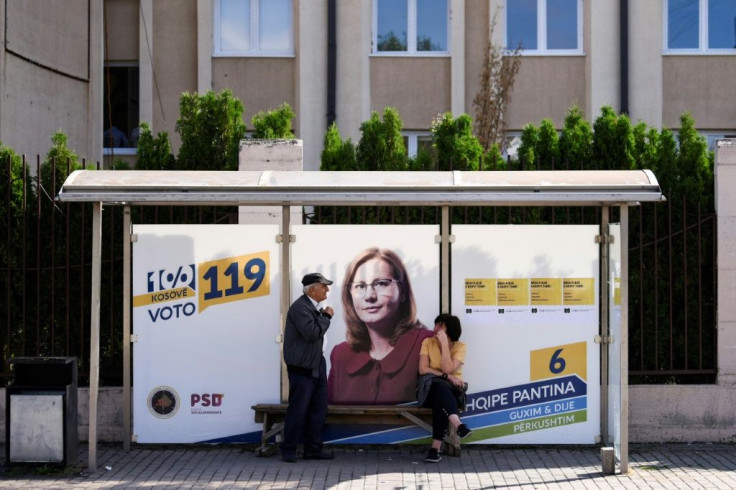'War Wing' Fights For Survival In Kosovo Poll

The former guerilla commanders who have dominated Kosovo since its independence will fight for political survival in elections on Sunday, with opposition parties threatening to boot them from power.
The poll is the fourth since tiny Kosovo formally broke away from Serbia in 2008.
But the optimism generated by that split has been flattened by frustration with a political class blamed for corruption and widespread poverty.
Kosovo's leading men -- President Hashim Thaci and ex-prime minister Ramush Haradinaj -- both hail from the rebel group that battled Serb forces in 1998-99, paving the way for independence.
Two decades later, they have failed to secure full global acceptance of Kosovo's statehood.
Belgrade and its allies, chiefly Russia and China, deny Kosovo's independence and have blocked it from a seat in the UN.
The picture is also bleak at home, where around a third of the population is unemployed.
On Sunday, two leading opposition parties hope to capitalise on public anger with the status quo.
They don't have much in common ideologically -- one camp is centre-right while the other is left-wing and nationalist.
But they share a common desire to send the so-called 'war wing' politicians into retirement.
The centre-right Democratic League of Kosovo (LDK) is being led by Vjosa Osmani, a 37-year-old law professor who hopes become the first woman to lead Kosovo as Prime Minister.
The other, 44-year-old Albin Kurti of the Vetevendosje party, is a leftist politician with a history of radical antics in parliament, including unleashing tear gas in the assembly.
The pair would need to eventually strike an alliance in order to take the reins from the former fighters, as no party in Kosovo's splintered political scene is expected to carve out an absolute majority.
Education, healthcare, jobs
Shpetim Gashi, a political analyst, says "it is more likely than ever before" that the establishment could suffer a defeat.
"Few in Kosovo are happy with the decade of independence," he told AFP.
"The voters' demands have increased. It is not enough any more just to have water and electricity. Now they want education, healthcare and good jobs."
One of the poorest parts of Europe, Kosovo has outdated infrastructure, a host of environmental woes and huge emigration rates, particularly to Germany and Switzerland.
Despite repeated promises from politicians, Kosovars are also the only people in the Balkans who still need a visa to enter the European Union -- an acute source of frustration for many.
"I think the (election) outcome will show that the people want a change of government," said Vedat Gashi, 26 and unemployed.
"The president of a corrupt country run by mafia cannot be forgiven for the political and economic crises the country is going through," he added.
The ex-fighters, however, can count on the backing of their traditional base -- especially older generations who lived through the war, and those who reside in the politicians' local strongholds.
They also wield heavy influence over civil servants.
"If it were up to me I would keep our liberators in the government. They were ready to sacrifice their lives in the war, proving that they love their country," said Adem Zeneli, a 67-year-old veteran from western Drenica, the region from which President Thaci hails.
Kosovo's Serb minority -- whose status remains a major sticking point in frozen talks between Pristina and Belgrade -- will also vote for their allotted 10 representatives in parliament.
Around 120,000 Serbs still live in overwhelmingly Albanian Kosovo, though many consider themselves loyal to Belgrade.
Polls open at 7:00 am local time (0500 GMT) and will close at 7:00 pm (1700 GMT).
Around 1.9 million people, including those in the diaspora, are registered to vote.
© Copyright AFP 2024. All rights reserved.





















